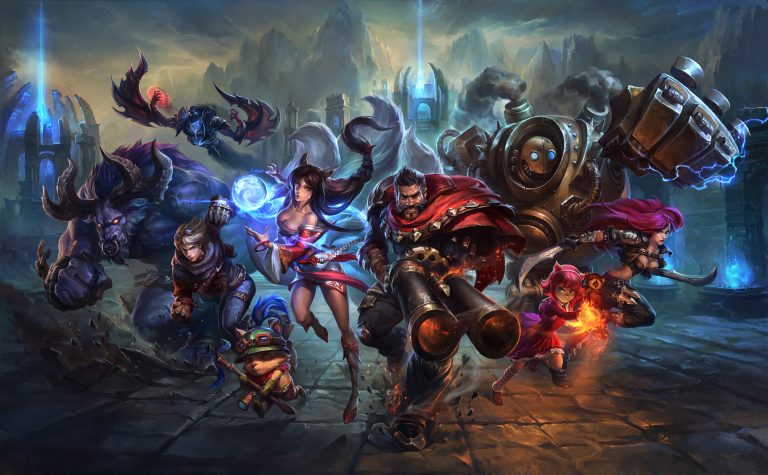If a game is popular enough, it is almost certain that its players will find ways to not play by the rules.
While some thinking-outside-the-box gameplay behaviors are harmless, others are more disruptive to the overall player experience. The most notorious is the use of cheats—software or scripts that give players an unfair advantage by enabling impossible feats such as seeing through walls or landing shots from miles away.
Lesser-known but also highly damaging behaviors include match making rating (MMR) boosting, in which a high-skilled player participates in matches using another player’s account to boost the account’s in-game rankings. Like cheats, boosting has become an industry in itself.
MMR boosting exists mainly in multiplayer games where high rankings serve as badges of honor and give players the opportunity to face more skilled opponents, with multiplayer online battle arena (MOBA) games being a prime example. As a problem that game developers around the world are still struggling to address, MMR boosting has left a deep mark in Tencent’s two most popular games: “League of Legends” and “Honour of Kings.”
Tencent has been battling cheats and MMR boosting for a while, suspending or banning any accounts found to be using them, but it has recently ramped up efforts to purge these behaviors from its most profitable titles. In addition to suspending more noncompliant accounts, the gaming giant released a new set of rules last month stating that livestreamers are not allowed to spread information about software and services that could damage the integrity of its games. While cheats and their distribution channels have receded to the shadowy corners of private messaging groups as a result of regular crackdowns, MMR boosting services is thriving in full daylight.
Supply and demand
MMR boosting services, known as dailian in Chinese, is available for several Tencent games on platforms such as Dailiantong and Dailianmao. Customers, referred to as “boostees,” can place orders for a specified increase in rankings on the platform, which will then assign each order to a “booster.” All of the platforms claim to be using “professional” boosters, offering customers money-back guarantees if boosters fail to complete the order.
Similar services are also rife on online shopping platforms such as Taobao and Tmall; stores boast about the quality of their service and provide customers with prompt text message notifications before the boosting service starts and after it ends. Several vendors display images of rooms filled with boosters as part of their product description; one store even advertised itself as the “pillar of the MMR boosting industry” that others should look up to.
The price of MMR boosting in China varies according to platforms but is a bargain compared to what gamers would pay in countries such as the US. An MMR boost for “League of Legends”—from the lowest division to the highest—costs $1,315 on Proboosting.net on non-China servers, whereas an equivalent boost on Dailianmao is RMB 1,953 (around $290).
The sales numbers on the platforms and stores are no less impressive. In the past five years, Dailiantong claims to have completed 30 million orders, which it assigned to more than 500,000 boosters. Between March 1 and 19 of this year, the top four Tmall stores that offer MMR boosting for “League of Legends” sold more than RMB 6.7 million worth of boosting services.
Tencent actions
MMR boosting can do real monetary damage to game developers and publishers. Cui Chenyu, a game analyst at information services company IHS Markit, said that while MMR boosting is less disruptive to games than cheats, it does wreak havoc. “MMR boosting can impact things like user diversity and user experience and can make acquiring new users difficult for developers,” she said.
In June 2018, Tencent released an official announcement explaining MMR boosting in “League of Legends” on its game security website and outlining the punishment for the behavior: First-time offenders’ accounts would be suspended for a week, second-time offenders will receive a one-month suspension and have their season-end prize canceled, and repeat offenders will be banned permanently from the game. If a repeat offender registers other accounts and continues violating the rules, the company will also consider issuing a hardware ban on their device, a Tencent spokesperson told TechNode.
Tencent subsequently released several notices citing the number of accounts suspended monthly for MMR boosting. Since January 2019, the company has increased the frequency of notices from monthly to weekly and significantly upped the number of suspensions. While the whole of December saw around 10,000 suspensions, the number surged to more than 25,000 in January and has continued to rise; nearly 40,000 were suspended in February. The Tencent spokesperson attributed the surge to the start of a new game season for “League of Legends.”
Tencent did not elaborate on the technical details of how it detects MMR boosting when responding to questions from TechNode, but says it makes decisions based on a number of factors, including players’ in-game behavioral patterns and reports from other players.
The results of Tencent’s crackdowns are mixed. The top four Tmall stores selling MMR boosts for “League of Legends” have received thousands of complaints about accounts being suspended after purchasing the service. However, the majority of comments lauded the boosters for completing orders quickly without incurring any form of punishment.
Players’ opinions
Tencent has cited three reasons for punishing boosters and boostees in “League of Legends”: damaging the user experience, devaluing the work of others, and endangering account security. Their June 2018 announcement explained that “League of Legends” assigns players to tiers with opponents who have similar skill levels; when a boostee plays on a MMR boosted account, they will not be able to keep up and ultimately become a burden to their team. Several players, however, told TechNode that they were most bothered by high-skilled boosters participating in lower-tier matches, as they can turn evenly matched games into one-sided “slaughters.”
While players generally dislike boosters, many are selective about their reporting. Peng Ying, a 21-year-old student at Nanjing Audit University in East China’s Jiangsu province, said he always flags opponent boosters because they can “annihilate our top laner with ease,” referring to a position that players can choose in the game. However, Peng admitted that he doesn’t report teammate boosters. “They are usually way more skilled than we are, and are assets on the team,” he said.
Other players simply don’t care enough to report, saying that there’s no need to take the game that seriously. Qian Lingfeng, a fourth-year student at Southwest Jiaotong University in Sichuan province and a veteran “League of Legends” player, said he has never reported boosters even when their identities are obvious. “Boosters also need to make a living. There’s no need to be too mad at them,” he said.
Legal gray area
Tencent has never tolerated those who use and produce cheats. Players found to be cheating in “League of Legends,” for instance, immediately receive a three-year suspension of their accounts. In 2017, Tencent also worked with police authorities to arrest more than 120 suspects who participated in the development and distribution of cheats for their games, according to the company’s game security website. The number of arrested suspects grew to over 300 in 2018, involving around RMB 151 million.
In contrast to clamping down on cheaters and those who manufacture cheats, Tencent has not taken strong action to stop MMR boosting, aside from suspending offenders’ accounts, leaving untouched the businesses and platforms that provide the service. According to legal experts, this is because the development and distribution of cheats is illegal, whereas the legality of MMR boosting is still unclear.
“Cheats are malware, and anyone who develops them disrupts computer information systems, which is a criminal offense. They also illegally break into computer information systems and gather data in violation of the seventh amendment to the Criminal Law of the People’s Republic of China,” Zou Yi, a lawyer at the Nanjing office of Denton Law, told TechNode.
In addition to those two offenses, creators and distributors of cheats could also face charges of illegal business operations and copyright infringement, said He Jing, an intellectual property lawyer at the Beijing branch of Merits & Tree Law Offices.
Legislation on MMR boosting and similar services has passed in countries like South Korea, but is still nonexistent in China. Without clear laws, game developers and publishers can only restrict such services in practice based on the terms of the user agreement.
Lawyers are still debating the legality of MMR boosting, with experts taking two sides, He told TechNode. One side argues that the service is legal since boostees and boosters engage in a service contract that does not damage the interests of a third party. Based on this view, publishers can punish offenders by suspending their accounts but cannot take legal action.
The other side’s reasoning is similar to Tencent’s, holding that MMR boosting damages game environments, rules, and balances, which could lead to drops in player counts and shortened game lifespans. Boosting arguably disrupts normal market order and competition, damaging the profits and interests of game publishers, meaning that it violates the law against unfair competition.
While a lawsuit could potentially determine which view will prevail, none yet have been filed. “As of now, no game developer or publisher has charged MMR boosting service providers with this reason,” He said, referring to violations of the law against unfair competition. “And if they don’t, judicial authorities can’t make a decision on this issue.”
Tencent did not directly answer whether it would resort to legal means to reduce the number of MMR boosting service providers, but the spokesperson said that the company reserves the right to “hold accountable those who threaten game security and who profit illegally.”
– This article originally appeared on TechNode.






